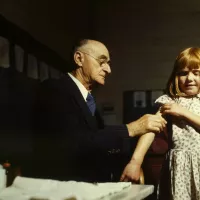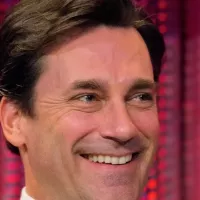The PGA Tour is a non-profit organization that organizes professional golf tours in North America. It oversees events such as the PGA Tour, PGA Tour Champions, Korn Ferry Tour, and PGA Tour Americas. Headquartered in Ponte Vedra Beach, Florida, the PGA Tour is the main organizer for the flagship annual series of tournaments known as the PGA Tour.
21 hours ago : Cognizant Classic: Expert picks, odds, and predictions for PGA Tour event.
The Cognizant Classic at Palm Beaches features expert picks, odds predictions, and returning star Brooks Koepka. Golf analysts analyze the event's key aspects, like the Bear Trap and player form.
April 10, 1916: Formation of the PGA
On April 10, 1916, the Professional Golfers' Association of America (PGA) was formed, marking the origins of the modern PGA Tour.
1916: Initial PGA Tour Schedule
In 1916, several prestigious golf tournaments, including the North and South Open, Metropolitan Open, Canadian Open, Shawnee Open, Western Open, and the U.S. Open, formed the initial schedule of what would later be known as the 'PGA Tour', with the addition of the PGA Championship.
1929: Formalization of The Circuit
In 1929, the professional golfers' circuit in the PGA, known as 'The Circuit', became more formalized. A tournament committee was formed, consisting of Tommy Armour, Al Espinosa, and J.J. Patterson.
1930: Hiring of Bob Harlow
In 1930, Bob Harlow was hired as manager of the PGA Tournament Bureau to formalize a year-round schedule of tournaments.
1938: Babe Zaharias Competes in PGA Tour Event
In 1938, Babe Zaharias became the first woman to compete in a PGA Tour event.
1945: Babe Zaharias Makes Cut in PGA Tour Event
In 1945, Babe Zaharias became the first and only woman to make a cut in a PGA Tour event.
1945: Byron Nelson's Record-Breaking Year
In 1945, Byron Nelson had a record-breaking year, winning 18 PGA tournaments out of the 30 he played, including 11 in a row.
1948: PGA Player of the Year award established
The PGA Player of the Year award was established in 1948 (originally named the PGA Golfer of the Year) and was awarded by the PGA of America.
1958: Arnold Palmer's First Masters Win
In 1958, Arnold Palmer, a crowd favorite, captured his first Masters Tournament which was televised on CBS, increasing his popularity as a TV star.
July 1968: Tour Pros' Dissatisfaction
Following the final major in July 1968 at the PGA Championship, several leading tour pros voiced their dissatisfaction with the venue and the abundance of club pros in the field. The increased friction resulted in a new entity in August, what would eventually become the PGA Tour.
December 1968: PGA Tour Spun Off
In December 1968, the PGA of America spun off its tour players into a separate organization from the club professionals. This new entity was initially known as the 'Tournament Players Division'.
1968: Byron Nelson Tournament Name
In 1968, The Byron Nelson became the first PGA Tour event to be named for a professional golfer.
January 1969: Joseph Dey Selected as Commissioner
In January 1969, Joseph Dey, the recently retired USGA executive director, was selected by the board as the PGA tour's first commissioner and agreed to a five-year contract.
1974: Introduction of The Players Championship
In 1974, The Players Championship, the PGA tour's flagship event, was introduced.
1974: Deane Beman Succeeds Joseph Dey
In early 1974, tour player Deane Beman succeeded Joseph Dey as commissioner and served for twenty years.
1975: Name Change to PGA Tour
In 1975, the 'Tournament Players Division' officially adopted the name 'PGA Tour'.
1978: Removal of Restriction on Women
In 1978, the PGA Tour "removed its restriction on women."
1979: Addition of European Players to Ryder Cup
In 1979, players from continental Europe were added to the Ryder Cup, which, combined with expanded television coverage, transformed the event into a premier international team competition.
August 1981: Name Change to TPA Tour
In late August 1981, due to a marketing dispute with the PGA of America, the PGA Tour officially changed its name to the TPA Tour, standing for 'Tournament Players Association'.
March 1982: Return to PGA Tour Name
In March 1982, after the resolution of disputed issues, the tour's name was changed back to the 'PGA Tour'.
1982: PGA Player of the Year selection based on points system
From 1982 to 2022, the PGA Player of the Year selection was based on a points system, with points awarded for wins, money list position, and scoring average.
1986: Introduction of the Official World Golf Ranking
In 1986, the Official World Golf Ranking was introduced, leading to competition between the PGA Tour and the European Tour for top golfers.
1990: PGA Tour Player of the Year award introduced
In 1990, the PGA Tour Player of the Year award, also known as the Jack Nicklaus Trophy, was introduced. The recipient is selected by the tour players by ballot.
1990: Rookie of the Year award introduced
The Rookie of the Year award was introduced in 1990. Players are eligible in their first season of PGA Tour membership if they competed in less than seven events from any prior season.
1990: Listing multiple time winners of PGA Tour Player of the Year Award
The provided text mentions players that have won the PGA Tour Player of the Year Award multiple times through 2024 (first awarded in 1990).
1992: PGA and PGA Tour Players of the Year are same every year
From 1992 through 2018, the PGA and PGA Tour Players of the Year have been the same every year.
June 1994: Tim Finchem Becomes Commissioner
In June 1994, Tim Finchem became the third commissioner of the PGA Tour.
1995: The Open Championship Becomes a PGA Tour Event
In 1995, The Open Championship in the UK, founded in 1860, became a PGA Tour event.
1999: Beginning of World Golf Championships
In 1999, the PGA Tour began play of the World Golf Championships.
2002: Retroactive Recognition of Open Championship Wins
In 2002, all Open Championship wins dating back to 1860 were retroactively recognized as PGA Tour victories.
2003: Annika Sörenstam and Suzy Whaley Play in PGA Tour Events
In 2003, Annika Sörenstam and Suzy Whaley played in PGA Tour events.
2004: Michelle Wie Plays in PGA Tour Events
From 2004, Michelle Wie played in PGA Tour events each year.
2005: Adam Scott's Unofficial Win at Nissan Open
In 2005, Adam Scott had an unofficial win at the Nissan Open because the tournament was stopped before 54 holes could be completed and reverted to the 36-hole score.
2005: PGA Tour partners with XM Satellite Radio for PGA Tour Network
In 2005, the PGA Tour reached a deal with XM Satellite Radio to co-produce a channel, the PGA Tour Network (now Sirius XM PGA Tour Radio), featuring event coverage and talk programming related to golf.
2005: PGA Tour's "Drive to a Billion" Campaign
In 2005, the PGA Tour started a campaign to push its all-time fundraising tally past one billion dollars, called "Drive to a Billion".
2006: Sky Sports ends run as main broadcaster of PGA Tour in UK
In the United Kingdom, Sky Sports was the main broadcaster of the PGA Tour for a number of years up to 2006.
2007: Setanta Sports wins exclusive UK and Ireland rights to PGA Tour
In 2007, Setanta Sports won exclusive UK and Ireland rights for six years to the PGA Tour for a reported cost of £103 million. The deal included Champions Tour and the Nationwide Tour events.
2007: The Players Championship Moved to May
In 2007, The Players Championship was moved to May to create a marquee event in five consecutive months.
2007: Tournament introduced in Mexico
In 2007, a tournament was introduced in Mexico as an alternate event staged the same week as the WGC-Accenture Match Play Championship.
2007: Introduction of the Fall Series
In 2007, the Fall Series was introduced, consisting of seven tournaments held in consecutive weeks after the Tour Championship, aimed at helping less successful players retain their tour cards.
2007: Golf Channel Becomes PGA Tour Pay Television Rightsholder
Since 2007, Golf Channel has served as the pay television rightsholder of the PGA Tour.
2008: Tournament introduced in Puerto Rico
In 2008, a tournament was introduced in Puerto Rico as an alternate event staged opposite the WGC-CA Championship.
2008: Tweaks to Fall Series Schedule
In 2008, the Fall Series schedule was tweaked. The first event was held opposite the Ryder Cup, and the series took a week off for the Tour Championship.
2008: Fall Series took a week off
In 2008, the Fall Series took a week off for the Tour Championship before continuing with its remaining six events.
2008: Change in Cut Policy
In 2008, the PGA Tour Policy Board approved a change in the number of players that will make the cut. The cut will continue to be low 70 professionals and ties, unless that results in a post-cut field of more than 78 players. Under that circumstance, the cut score will be selected to make a field as close to 70 players as possible without exceeding 78.
2008: Schedule Tweaks and Ryder Cup Break
In 2008, the PGA schedule was tweaked, and the Tour took a full week off before the Ryder Cup, with the Tour Championship the week after that.
2008: Michelle Wie Plays in PGA Tour Events
Through 2008, Michelle Wie played in PGA Tour events.
June 23, 2009: Setanta's UK arm ceases broadcasting
On June 23, 2009, Setanta's UK arm went into administration and ceased broadcasting.
2009: Eurosport picks up PGA Tour television rights
In 2009, Eurosport picked up the television rights for the remainder of the season.
2009: Tweaks to Fall Series Schedule
In 2009, the Fall Series schedule was tweaked. The series took a week off for the Presidents Cup.
2009: PGA Tour Organizes Week-to-Week Events
In 2009, the PGA Tour organized 43 week-to-week events, including The Players Championship and the FedEx Cup events, as well as the biennial Presidents Cup. In 2009, the total raised for charity was some $108 million.
2009: Charitable Contributions from PGA Tour Events
In 2009, the PGA Tour, PGA Tour Champions and Korn Ferry Tour events raised some $108 million for charity.
2009: Schedule Tweaks and President's Cup Break
In 2009, the PGA schedule was tweaked, and the Tour took a week off before the Tour Championship, with the Presidents Cup taking place two weeks after that.
2009: Fall Series Changes
The Fall Series saw major changes for 2009, with one of its events moving to May and another dropping off the schedule entirely. It returned to its original start date of the week after the Tour Championship.
2010: Sky Sports regains PGA Tour TV rights
From 2010 to 2017, Sky Sports regained the TV rights with an eight-year deal.
2011: Hyundai takes over title sponsorship from SBS
In 2011 Korean automobile manufacturer Hyundai took over the title sponsorship from SBS, but SBS still remains a sponsor of the event.
2011: Isabelle Beisiegel Earns Tour Card on Canadian Tour
In 2011, Isabelle Beisiegel became the first woman to earn a Tour card on the Canadian Tour, now PGA Tour Canada.
2011: Fall Series Reduced to Four Events
In 2011, the Fall Series was reduced to four events, all held after the Tour Championship. This followed the move of the Viking Classic into the regular season as an alternate event.
March 2012: PGA Tour Courage Award introduced
In March 2012, a new award, the PGA Tour Courage Award, was introduced in replacement of the defunct Comeback Player of the Year award.
March 20, 2012: Announcement of Radical Changes
On March 20, 2012, the PGA tour announced radical changes to the tour's season and qualifying process.
2012: Top 125 Players Retain Tour Cards
In 2012, the top 125 players on the PGA Tour's money list at the end of the season retained their tour cards.
2012: PGA Tour Qualifying Tournament Format
Through the 2012 edition, the top-25 finishers, including ties, received privileges to play on the following year's PGA Tour.
2013: Minor tweak of final details
Details of the changes relating to the Fall Series were announced on June 26, with the remaining details announced on July 10. One of the final details received a minor tweak, effective for the 2013 season only, on September 11.
2013: Korn Ferry Tour Qualifying Tournament Format
From 2013, all competitors who made the final phase of Q-School earned status on the Korn Ferry Tour at the start of the following season, with high finishers receiving additional rights.
2013: FedEx Cup Points List Determines Tour Card Retention
In 2013, the top 125 players on both the money list and the FedEx Cup points list retained their tour cards at the end of the FedEx Cup regular season in August. The tour considered whether to keep this system in place for future seasons.
2013: Korn Ferry Tour Golfers Earn PGA Tour Privileges
Since 2013, 50 Korn Ferry Tour golfers earn privileges during the next PGA Tour season. A golfer who wins three events on that tour in a calendar year earns a "performance promotion".
2013: Sirius XM PGA Tour Radio includes audio simulcasts of Golf Channel programs
Since 2013, the PGA Tour Network (now Sirius XM PGA Tour Radio) has included audio simulcasts of selected Golf Channel programs.
2013: Last Calendar Year Season
The 2013 season was the last to be conducted entirely within a calendar year.
2013: 2013 Season Structure
The 2013 season, the last before transitioning to a schedule spanning two calendar years, featured 40 official-money events in 38 weeks, including alternate events. The Presidents Cup was also part of the season.
2014: FedEx Cup Points List Determines Tour Card Retention
In 2014, the top 125 players on the FedEx Cup points list retained their tour cards. The next 75 players, along with the top 75 on the Korn Ferry Tour's money list, became eligible for the Korn Ferry Tour Finals. 50 PGA Tour cards for the next season were awarded at the end of the Finals.
2014: Season Starts in October
Since the 2014 season, the PGA tour season starts in October of the previous calendar year, shortly after the Tour Championship. The tournaments in the now season-opening Fall Series are awarded full FedEx Cup points.
2015: PGA Tour Freezes Exemption for Military Service
In 2015, the PGA Tour added a clause to freeze an exemption for players required to perform military service in their native countries, in response to South Korea's Bae Sang-moon having to leave the Tour for that reason.
2016: PGA Tour Live coverage pilot on Twitter
At the end of the 2016 season, the PGA Tour piloted free coverage of PGA Tour Live on Twitter.
2016: PGA Tour releases 2016-17 priority ranking system
The PGA Tour maintains a priority ranking system that is used to select the fields for most tournaments on tour. The provided text discusses the 2016–17 ranking system, in order of priority.
January 1, 2017: Jay Monahan Succeeds Tim Finchem
On January 1, 2017, Jay Monahan succeeded Tim Finchem as commissioner of the PGA Tour.
2017: Sky Sports eight-year TV rights deal ends
From 2010 to 2017, Sky Sports had TV rights with an eight-year deal.
2017: Charitable Contributions from PGA Tour Events
In 2017, the PGA Tour announced that it had generated $180 million for charities through the tournaments of its six tours.
2017: PGA Tour Considers Opting Out of Broadcast Contracts
In 2017, the PGA Tour considered invoking an option to opt out of its broadcast television contracts but ultimately decided against doing so.
2017: PGA Tour Live coverage expands to Twitter
Since 2017, following a pilot at the end of the 2016 season, portions of PGA Tour Live coverage are also carried for free via the PGA Tour's Twitter account.
June 2018: Discovery, Inc. acquires international media rights to PGA Tour
In June 2018, Discovery, Inc. acquired exclusive international media rights to the PGA Tour outside of the United States, beginning in 2019, under a 12-year, US$2 billion deal.
2018: PGA and PGA Tour Players of the Year are same every year
From 1992 through 2018, the PGA and PGA Tour Players of the Year have been the same every year.
January 2019: GolfTV replaces PGA Tour Live in international markets
In January 2019, GolfTV was set to replace PGA Tour Live in international markets as existing rights lapse, beginning with Australia, Canada, Italy, Japan, the Netherlands, Portugal, Russia, and Spain.
2019: PGA Tour Live moves to NBC Sports Gold
From 2019 to 2021, the PGA Tour's streaming service, PGA Tour Live, was operated under NBC Sports' subscription streaming platform NBC Sports Gold, which added featured holes coverage during Golf Channel's windows.
2019: SBS contract with PGA Tour extended
In South Korea, SBS, agreed in 2009 to extend its contract with the PGA Tour through 2019.
March 9, 2020: PGA Tour renews broadcast contracts with CBS and NBC
On March 9, 2020, the PGA Tour announced a contract renewal agreement with CBS and NBC through 2030, maintaining existing broadcast arrangements with alternating rights to the FedEx Cup playoffs' final three events. The PGA Tour now controls on-site production and infrastructure for all media partners.
June 2020: PGA Tour University Created
In June 2020, the PGA Tour announced the creation of PGA Tour University, a scheme to create pathways for collegiate golfers to join development tours operated by the PGA Tour.
2020: Cut Line Reduced
For the 2020 season, the cut line was reduced to 65 plus ties and eliminated the 54-hole cut.
2020: PGA Tour Renews Broadcast Television Rights Contracts
In 2020, the PGA Tour renewed its broadcast television rights contracts with CBS Sports and NBC Sports through 2030.
2021: PGA Tour Live was operated under NBC Sports Gold
From 2019 to 2021, the PGA Tour's streaming service, PGA Tour Live, was operated under NBC Sports' subscription streaming platform NBC Sports Gold, which added featured holes coverage during Golf Channel's windows.
2021: PGA Tour Expresses Concerns Over LIV Golf
In late 2021, the PGA Tour started communicating with White House officials and members of Congress, raising concerns about LIV Golf proposals and paid DLA Piper to lobby lawmakers.
2021: PGA Tour renews contract with Sirius XM
The PGA Tour's contract with Sirius XM was renewed through 2021.
June 2022: PGA Tour Suspends Players Joining LIV Golf
In June 2022, the PGA Tour suspended 17 players who participated in the inaugural LIV Golf Invitational Series event. Players joining LIV Golf faced the same punishment, including major champions Brooks Koepka, Bryson DeChambeau, Patrick Reed, Dustin Johnson, and Phil Mickelson.
November 2022: GolfTV is shuttered
In November 2022, GolfTV was shuttered after Discovery merged with WarnerMedia, with Warner Bros. Discovery prioritizing its Discovery+ and HBO Max services instead.
November 2022: PGA Tour University System Modified
In November 2022, the PGA Tour University system was modified, and beginning in 2023 the top-ranked collegiate golfer would immediately be awarded membership on the PGA Tour.
2022: Last year points system was used to determine Player of the Year
From 1982 to 2022, the PGA Player of the Year selection was based on a points system, with points awarded for wins, money list position, and scoring average. The award was last given in 2022.
2022: Listing multiple time winners of PGA Player of the Year Award
The provided text mentions players that have won the PGA Player of the Year Award multiple times through 2022.
2022: PGA Tour Live moves to ESPN+
Under the 2022–2030 contract, the PGA Tour Live service moved back to ESPN+.
June 6, 2023: PGA Tour, PGA European Tour, and LIV Golf Announce Merger Agreement
On June 6, 2023, the PGA Tour, PGA European Tour, and LIV Golf announced an agreement to merge their commercial rights into a single, for-profit entity, with the Saudi Public Investment Fund as the "exclusive investor".
September 2023: Trial Scheduled for PGA Tour Antitrust Lawsuit
The trial for the main case of the antitrust lawsuit filed by LIV Golf players against the PGA Tour was scheduled to begin in September 2023.
October 2023: Gordon Sargent reaches threshold for PGA Tour card
In October 2023, following the World Team Amateur Championship in Dubai, Gordon Sargent reached the 20-point threshold and became the first ever player to earn PGA Tour card through PGA Tour University Accelerated program.
December 31, 2023: Deadline for PGA Tour, PGA European Tour, and LIV Golf Merger Deal
December 31, 2023, was set as the deadline for completing the PGA Tour, PGA European Tour, and LIV Golf merger deal, though negotiations for an extension were reported.
January 31, 2024: PGA Tour Announces Investment by Strategic Sports Group
On January 31, 2024, the PGA Tour announced a $3 billion investment by Strategic Sports Group into PGA Tour Enterprises, its for-profit arm. Active players were also given an opportunity to receive equity grants.
2024: Byron Nelson played near Dallas
As of 2024, the Byron Nelson is played annually near Dallas.
2024: Gordon Sargent defers card
Following the World Team Amateur Championship in Dubai, Gordon Sargent reached the 20-point threshold to earn PGA Tour card but elected to defer his membership and return for his senior year at Vanderbilt in 2024.
2024: PGA Tour University provides PGA Tour Americas cards
In 2024, PGA Tour University gave PGA Tour Americas cards to golfers who finished 11th-25th (up from 20th) in the rankings and entry into the second stage of PGA Tour Q School.
2024: Listing multiple time winners of PGA Tour Player of the Year Award
The provided text mentions players that have won the PGA Tour Player of the Year Award multiple times through 2024 (first awarded in 1990).
June 2025: Brian Rolapp Announced as Next PGA Tour CEO
In June 2025, NFL executive Brian Rolapp was announced as the next CEO of the PGA Tour, set to take effect in 2026.
August 2025: Tiger Woods Appointed Chair of PGA Tour's Future Competition Committee
In August 2025, Tiger Woods was appointed as the chair of the PGA Tour's newly created Future Competition Committee, tasked with reviewing and proposing reforms to the Tour's competition model.
2025: Top ten career money leaders on the tour
As of the 2025 season, the provided text references the top ten career money leaders on the PGA tour.
2025: PGA Tour to produce dedicated world feed for international broadcasters
Beginning at the 2025 Players Championship, the PGA Tour will begin to produce a dedicated world feed for international broadcasters, separate from the American network coverage.
2025: PGA Tour designates "Signature Events"
For 2025, eight tournaments were designated as "Signature Events": the Sentry Tournament of Champions, AT&T Pebble Beach Pro-Am, Genesis Invitational, Arnold Palmer Invitational, RBC Heritage, Truist Championship, The Memorial Tournament, and the Travelers Championship.
2026: Brian Rolapp Becomes PGA Tour CEO
In 2026, Brian Rolapp becomes the CEO of the PGA Tour.
2030: End Date of PGA Tour's Broadcast Television Rights Contracts
2030 is the end date of the PGA Tour's broadcast television rights contracts with CBS Sports and NBC Sports.
2030: PGA Tour Live moves to ESPN+
Under the 2022–2030 contract, the PGA Tour Live service moved back to ESPN+.
Mentioned in this timeline

The White House located at Pennsylvania Avenue NW in Washington...
CBS Broadcasting Inc CBS is a prominent American commercial broadcast...

FedEx Corporation originally Federal Express is a multinational conglomerate based...

Sony is a Japanese multinational conglomerate based in Tokyo Its...
Puerto Rico is a self-governing Caribbean archipelago and island that...

LIV Golf is a professional men's golf tour established in...
Trending

5 minutes ago CDC Panel to Discuss COVID-19 Vaccine Injuries Following RFK Jr.'s Meeting

5 minutes ago Casey Means' Surgeon General Nomination Faces Scrutiny Over Mainstream Medicine Criticism and Birth Control Views.
1 hour ago Punch, the lonely baby monkey, goes viral and wins hearts worldwide.

2 hours ago Jon Hamm Discovers Viral Dancing Meme; Reacts to Meme-Worthy Status at 54.

2 hours ago Georgia: Missing child found safe after Amber Alert issued in Barrow County.

3 hours ago Selena Gomez Defends Benny Blanco Amid Dirty Feet Frenzy and Divorce Comments.
Popular

Jesse Jackson is an American civil rights activist politician and...

Barack Obama the th U S President - was the...

Susan Rice is an American diplomat and public official prominent...

XXXTentacion born Jahseh Dwayne Ricardo Onfroy was a controversial yet...

Michael Joseph Jackson the King of Pop was a highly...

Kashyap Pramod Patel is an American lawyer who became the...